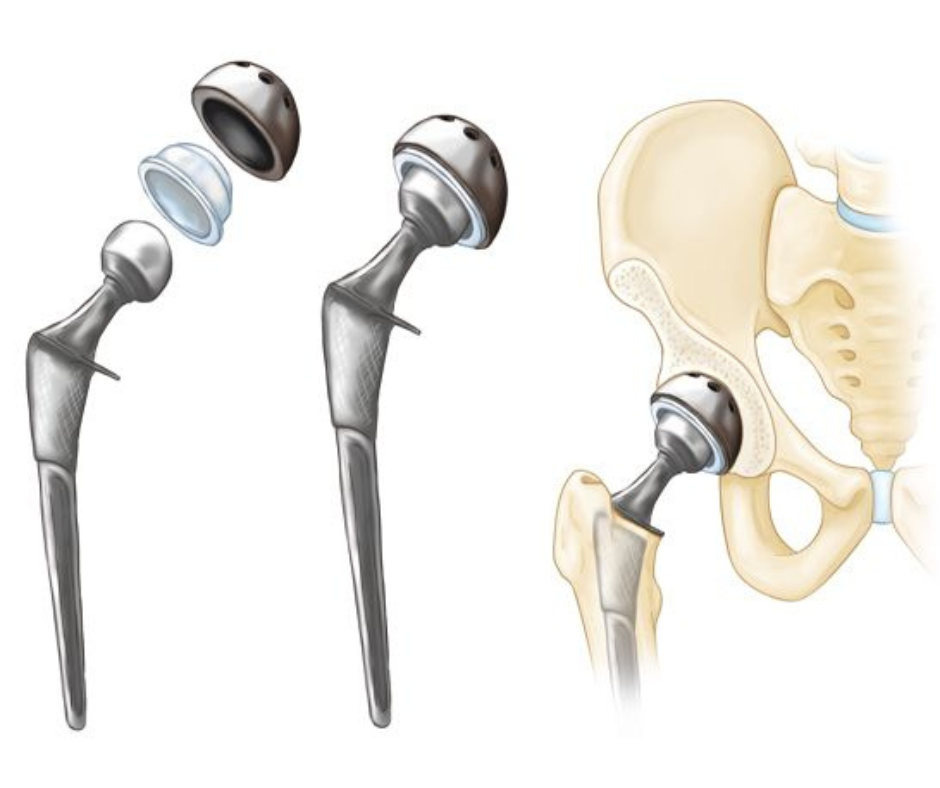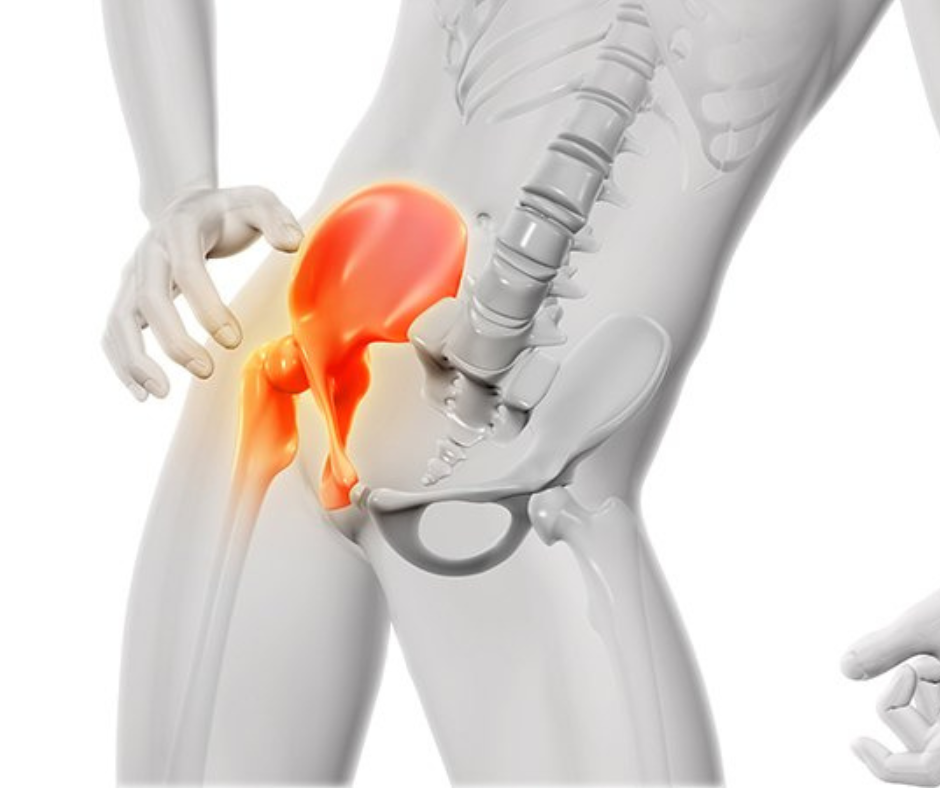Hip Replacement Surgery in India

As you embark on your journey to better understand hip replacement surgery in India, let me tell you that India emerges as a top destination for this life-changing procedure. With advanced technology, skilled surgeons, and affordable costs, we at Universal Hospital offer an excellent choice for those seeking hip replacement surgery in India.
In this comprehensive guide, we will explore the ins and outs of hip replacement surgery in India, covering everything from the reasons behind choosing India as a medical tourism destination, cost factors, success rates, and the expertise of Indian surgeons.
India has come a long way in advancing its medical field and has become one of the top destinations for medical tourism, especially for orthopedic procedures like total hip replacement rehabilitation center. The country boasts state-of-the-art technology, highly skilled surgeons, and cost-effective treatment options. Here are five factors that make us stand out as an ideal choice for your hip replacement surgery in India
Save up to 80% on costs compared to other countries as hip replacement surgery cost
ranges from INR 3,50,000 to INR 4,50,000 (4200 – 5400 USD).
Expert doctors with education or training from top institutions of India. Dr. Anant Bagul is one of the best hip replacement surgeon in India.
Translators, free shuttle service (Airport-hospital), and personalized care.
Up to 95% for hip replacement surgery
Breathtaking tourist attractions.
Understanding the Total Hip Replacement Cost in India
The cost of hip replacement surgery in India is a fraction of the cost compared to countries like the USA, UK, Canada, Australia, and New Zealand. Several factors affect the overall cost of the procedure:
1. In India, the cost of Total Hip Replacement (THR) surgery typically ranges from INR 3,50,000 to INR 4,50,000 (approximately 4200 – 5400 USD).
2. For Partial Hip Replacement (PHR) surgery, the cost usually falls between INR 2,00,000 to INR 3,00,000 (approximately 2400 – 3600 USD).
3. In the case of Revision Hip Replacement surgery, the cost ranges from INR 3,00,000 to INR 4,50,000 (approximately 3600 – 5400 USD).
4. If you are considering Hip Resurfacing surgery, the cost in India typically ranges from INR 2,00,000 to INR 3,00,000 (approximately 2400 – 3600 USD).
These price ranges provide an estimate of the expenses associated with each type of hip replacement procedure in India
1. Metal-on-Polyethylene (MoP): Metal femoral component with a plastic acetabular cup.
2. Ceramic-on-Polyethylene (CoP): Ceramic ball with a plastic socket.
3. Metal-on-Metal (MoM): Metal ball and socket (less commonly used).
4. Ceramic-on-Ceramic (CoC): Ceramic ball and socket for improved wear resistance.
5. Ceramic-on-Metal (CoM): Ceramic ball with a metal socket.
6.Modular Implants: Interchangeable components for customized fit.
1. Anterior Approach: Accessed from the front, between muscles, with potential benefits of reduced muscle damage and faster recovery.
2. Posterior Approach: Accessed from the back, involves cutting through muscles, providing good visibility.
3. Lateral Approach: Accessed from the side, offers good visibility but may involve cutting through muscles.
4. Minimally Invasive Surgery (MIS): Involves smaller incisions and specialized instruments to minimize tissue disruption.
5. Robotic-Assisted Surgery: Utilizes robotic systems for enhanced precision and accuracy.
Any comorbidities or condition affecting the surgery or complication adds on to the charges of the surgery.
With being the best hospital for hip replacement surgery in India, Universal hospital also has the best hip replacement surgeon in India . Dr.Anant Bagul ( M.B.B.S, MS in Ortho) has an experience of over 33 years with expertise in THR , TKR and other orthopedic specialities
It depends on the clinical condition of the patient.
Hip replacement surgery cost in pune is comparatively on the lower side as compared to metro cities as the cost of living affects the charges in different parameters.

The Success Rate of Hip Replacement Surgery in India:
The success rate of hip replacement surgery in India primarily depends on a combination of nonsurgical and surgical factors:
1. Gender
2. Age
3. Body Mass Index
4. Prosthetic Material
5. Risk factors
6. Surgical Factors
7. Anesthesia
8. Postoperative complications
9.Rehabilitation
The success of a hip replacement surgery in India depends on discussing the case with the surgeon, understanding the pros and cons of the surgery, and setting realistic expectations. It’s essential to follow the surgeon’s instructions and proper post-operative care to ensure a successful outcome.

Expertise of Indian Surgeons in Hip Replacement Surgery :
India is home to some of the world’s most skilled and experienced orthopedic surgeons who have received education and training from prestigious institutions across the world.
Dr. Anant Bagul is one of the best orthopedic surgeons in Pune and in India.
These surgeons specialize in various hip replacement surgery techniques, including traditional, minimally invasive, and even robotic-assisted procedures.
With a wealth of expertise,Universal hospital is one of the best hospital for total hip replacement in India that is well prepared to handle even the most complex cases ensuring the best possible care.
The recovery time after hip replacement surgery in India can vary depending on the type of surgery, the patient’s age, and overall health. Generally, patients can expect to be discharged from the hospital within 4-5 days after the surgery.
Following discharge, a 2-week (approximate) physiotherapy program is typically recommended, which may cost an additional INR ₹20,000 to ₹25,000 (approximately $300-$400).
India has emerged as a popular destination for medical tourism, particularly for orthopedic procedures like hip replacement surgery. The country offers state-of-the-art technology, highly skilled surgeons, and cost-effective treatment options. By choosing India for your hip replacement surgery, you can benefit from:
1. World-class medical facilities
2. Affordable treatment costs
3. Highly skilled and experienced surgeons
4. Personalized care and attention
The opportunity to combine treatment with a vacation to explore India’s rich culture and history
In conclusion, India is an excellent choice for those seeking hip replacement surgery. With advanced technology, skilled surgeons, and affordable costs, India provides an exceptional option for individuals seeking relief from hip pain and improved mobility. By carefully considering the factors outlined in this guide, you can make an informed decision about whether hip replacement surgery in India is the right choice for you.
In certain cases, the clinical condition of the patient may not necessitate a hip replacement, and instead, a minimally invasive procedure known as hip arthroscopy may be considered as per the specific requirements.
Let’s understand more about Hip arthroscopy:
What is Hip Arthroscopy?
Hip arthroscopy is a minimally invasive surgical technique employed to address hip-related issues. During the procedure, the surgeon creates minor incisions in the hip area and inserts an arthroscope—a specialized tool equipped with a camera and light—into the joint region. This enables the surgeon to visualize and address any damage around the hip joint, utilizing additional small tools if necessary to repair bone or connective tissue.
Compared to other surgical methods, hip arthroscopy surgery involves smaller incisions, resulting in reduced stress on the body. Following the procedure, physical therapy is typically required to enhance strength and regain mobility in the hip. Recovery time after hip arthroscopy typically spans a few months, allowing sufficient healing and rehabilitation.
Hip arthroscopy surgery in comparison to hip replacement is a minimally invasive surgery that gives less stress on the joint region .
The hip arthroscopy surgery solves major issues for many patients that is pain and mobility and helps in avoiding the extensive hip replacement surgery.
The expected recovery period for hip arthroscopy is typically around six weeks, although this may vary depending on the extent of tissue repair performed by the surgeon. If the procedure involves the repair of damaged tissue, the recovery timeline may be extended.
During the recovery period, it is common to limit activities that exert excessive stress on the hip joint until both strength and range of motion are fully restored. Participation in a physical rehabilitation (rehab) program is often recommended to aid in the recovery process. This program is designed to facilitate the restoration of hip function, improve strength, and regain normal movement patterns.
It is important to follow the guidance of your doctor and rehabilitation team to ensure a successful recovery. They will provide specific instructions tailored to your individual case, helping you regain optimal hip strength and mobility before resuming normal activities.
Frequently Asked Questions
Total Hip Replacement (THR) is a surgical procedure that replaces a damaged hip joint with an artificial joint, relieving pain and improving mobility. The damaged bone and cartilage are removed, and a prosthetic ball and socket are inserted in their place. THR is performed for conditions like arthritis or hip fractures to restore hip function.
Hip replacement surgery in India has a success rate exceeding 95 percent, demonstrating its effectiveness in alleviating pain and restoring function for individuals who undergo the procedure.
Universal Hospital, in Pune city is one of the best for hip replacement in India.
It is expected that about 90-95% of patients can have their total hip replacement functioning 10 years after the surgery, while about 85% can expect the functionality of the total hip replacement functional 25 years later.
While most hip replacements are performed in patients between 60 and 80 years of age, older or younger age is not a contraindication to surgery.

